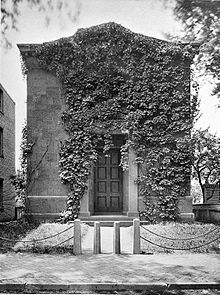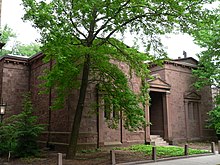It is said that if you want to see the relics of Mary Magdalene, you must travel to the church of Vézelay in Provence, France. These objects have been extremely controversial, as they are surrounded by legends and contradictory stories.
Some say that Mary Magdalene ended her days in Ephesus with Saint John and the Holy Virgin, while others say her relics were removed from there to Constantinople.
Another legend associates France with Mary Magdalene. That is if she escaped, along with Lazarus and his sisters, from persecution, reaching the coasts of Gaul. Mary Magdalene evangelized parts of France and spent her last days living in a cave in Provence. Her relics were first venerated in Vézelay.
Later, St Maximin-la Sainte Baume claimed that her relics were there and what is supposed to be her skull could be seen in the Basilica of St Maximin.
The skull of Mary Magdalene rests most of the year in the crypt of the Sainte Marie Madeleine Basilica, a Gothic basilica whose construction began in 1295 under Charles II of Anjou, King of Naples, Count of Provence and nephew of Saint Louis (King of France).
Mary Magdalene’s body was buried on this land, and then hidden for centuries only to be rediscovered on December 10, 1279 during excavations ordered by Charles II himself.
Mary Magdalene’s remains were found intact, except for her jawbone. Beneath the dust inside the tomb was a wax-wrapped wooden tablet. Mary Magdalene’s jawbone was sent to Rome after a previous excavation of her tomb and before the invasion of 710 AD, when all the important relics in France were hidden.

In Rome, Mary Magdalene’s jawbone had been venerated for centuries. With the news of the 1279 discovery, Pope Boniface VIII returned the jawbone to St. Maximin-la-Sainte-Baume and on April 6, 1295, it was reunited with Mary Magdalene’s skull.
It is said that, when Mary Magdalene’s tomb was first opened in 1279, there was a wonderful smell of roses that filled the air, and there was a small piece of skin attached to her skull, where Jesus touched her after his resurrection. The bishops who witnessed the excavation called it “noli me tangere”, because they believed that, through the miracle of Jesus‘ touch, the skin was still alive. The caretakers of the relics carefully sealed the “noli me tangere” in a glass vase.
In the seventeenth century, Protestants destroyed the Benedictine abbey of Vézelay, converted the church into a stable, and destroyed the relics. In 1793, during the French Revolution, the sanctuary was attacked and the relics thrown away. The St. Maximin Basilica was saved from total destruction by turning it into a government store.
Joseph Bastide, sacristan of St. Maximin, removed the skull of Mary Magdalene and the “noli me tangere”. After the Revolution, Bastide brought his treasure to the archbishop. The relics of Mary Magdalene, which are there now, were delivered to the church after its restoration.
Less than a century later, at the time when the gold reliquary was created to house the skull with its golden hair, carried by four golden angels (presumably 1860 because the Roman numerals “MDCCCLX” are on the back), the artist designed a special place under the skull to put the glass jar containing the precious “noli me tangere”.
Currently, believers and tourists can find the skull of Mary Magdalene in the crypt behind an iron grille beneath the ground floor of the basilica, down a narrow stone staircase just behind her alabaster sarcophagus. It is difficult to see the skull through the iron grille, even when close.
From July 22nd, for a whole week, the skull is taken out of this place with all the care, when the festival of Mary Magdalene begins. Mary Magdalene’s skull in its gold reliquary weighs approximately 400 kilograms and is carried by eight men from the basilica through the streets of St. Maximin-la-Sainte-Baume in a candlelit procession with songs and prayers. When they take Mary Magdalene’s skull outdoors, they cover it with a golden cloak to protect it.
After 2,000 years, the supposed skull of Mary Magdalene is preserved in a small town in the south of France, for everyone to see. Many witnesses claim that the characteristic scent of roses still lingers. However, it is impossible to confirm the origin of the bones of these relics, but the skull continues to be a precious treasure for Catholic believers.











